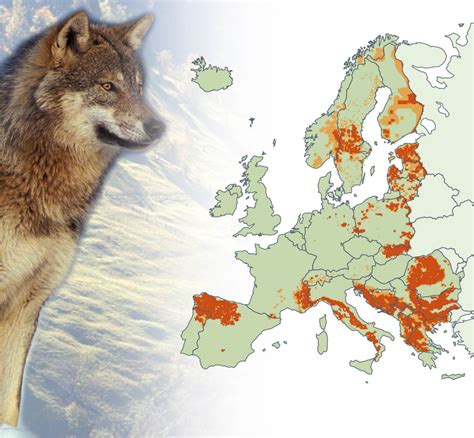Countries in Europe have reached a landmark decision that could reshape the continent’s wildlife landscape. In a pivotal move, members of the Bern Convention on the Conservation of European Wildlife and Natural Habitats have approved a proposal to downgrade the protection status of wolves, signaling a significant shift in policy. This development marks a crucial victory for both the European Union and farmers seeking greater autonomy to address threats posed by these apex predators.
The decision was finalized during a meeting in Strasbourg where stakeholders gathered to deliberate on the future management of wolf populations across Europe. The outcome endorsed altering wolves’ classification from
“strictly protected”
to
“protected,”
paving the way for potential amendments to existing regulations such as the Habitats Directive. This adjustment is poised to streamline procedures for national authorities to grant derogations allowing targeted culls of wolves deemed hazardous to farming communities.
### Advocacy Triumphs ###
European Commission President Ursula von der Leyen emerges as a key proponent behind this progressive motion, having spearheaded efforts to garner support among EU member states. Von der Leyen’s personal connection to this cause became tragically apparent when her cherished pony, Dolly, fell victim to a wolf attack in 2022. Her impassioned advocacy underscores the emotional stakes intertwined with conservation policies impacting human-animal coexistence.
### Diverse Support and Dissent ###
Noteworthy participants endorsing the revised protection framework encompass Andorra, Armenia, Iceland, Norway, Serbia, Switzerland, as well as all 27 EU nations among others. Conversely, dissenting voices from countries like Montenegro and Albania underscore contrasting viewpoints regarding wildlife preservation strategies within diverse socio-economic contexts.
### Legal Road Ahead ###
Despite resounding approval at the convention level, impending implementation hinges on bureaucratic processes within each signatory nation. The official transition from
“strictly protected”
to
“protected”
status awaits ratification by an adequate number of Council of Europe’s Bern Convention parties—an intricate procedure bound by regulatory timelines and diplomatic negotiations.
### Stakeholder Reactions ###
Unsurprisingly, reactions span a wide spectrum following this watershed decision. Proponents hail it as a vital step towards safeguarding rural livelihoods while acknowledging ecological imperatives—a delicate balancing act demanding nuanced policy interventions tailored for sustainable outcomes.
### Unveiling Contrasting Views ###
However, environmental advocates express reservations over what they perceive as ill-conceived policy changes driven more by political expediency than empirical evidence or ecological imperatives. Concerns loom large about potential reverberations extending beyond wolf conservation alone—raising questions around broader implications for ecosystem integrity under evolving legislative frameworks.
### Embracing Evolving Dynamics ###
Amidst divergent perspectives surrounding wolf management strategies lies an opportunity for constructive dialogue bridging competing interests while upholding core principles of biodiversity conservation and sustainable agriculture practices alike.
Embracing Nuance: Navigating Complexities in Wolf Conservation Policies









Leave feedback about this